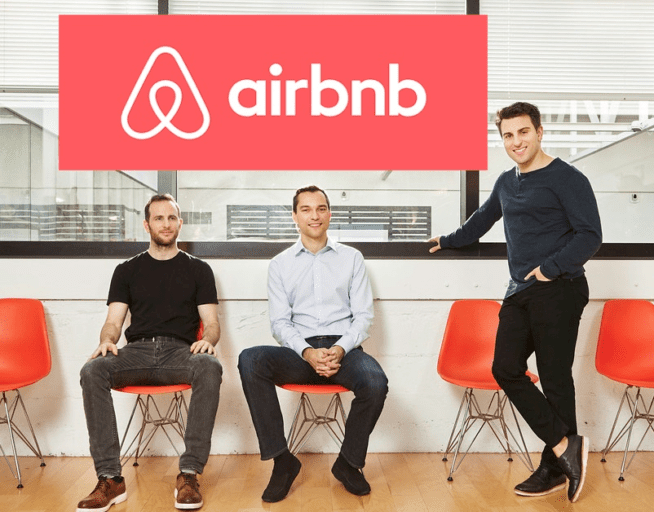Starting an Airbnb business can be a profitable venture, offering flexibility and the chance to capitalize on the growing demand for short-term rentals. Whether you own a property or plan to rent one, each approach has its advantages and challenges. This guide explores both options in detail and provides actionable steps to set up and succeed in your Airbnb business.
Why Start an Airbnb Business?
- Growing Market: With millions of travelers worldwide, Airbnb offers a platform to earn from unused spaces or dedicated rental properties.
- Flexibility: Hosts can decide pricing, availability, and house rules.
- Profit Potential: High demand in tourist areas or urban centers can generate substantial income.
Owning a Property for Airbnb
Advantages:
- Full control over the property.
- Long-term investment potential as property value appreciates.
- No dependency on landlord permissions.
Challenges:
- High upfront costs (down payment, mortgage, maintenance).
- Responsibility for property management and legal compliance.
Steps to Start Airbnb with Owned Property:
- Choose the Right Location:
- Opt for tourist hotspots or urban areas with consistent demand.
- Research local Airbnb performance and average rental rates.
- Purchase the Property:
- Secure financing or use savings.
- Consider properties with unique features or easy accessibility.
- Prepare the Property:
- Invest in quality furniture and amenities.
- Create an inviting design that appeals to your target audience.
- Register and Insure the Property:
- Comply with local short-term rental laws and zoning regulations.
- Get Airbnb-specific insurance to cover guest-related risks.
- List on Airbnb:
- Write an engaging listing with high-quality photos and detailed descriptions.
- Highlight unique selling points like proximity to attractions, amenities, or discounts.
Renting a Property for Airbnb (Rental Arbitrage)
Advantages:
- Lower upfront costs compared to buying.
- Faster scalability with multiple rental agreements.
- Flexibility to test locations without long-term commitment.
Challenges:
- Requires landlord approval.
- Monthly rental costs reduce profit margins.
- Potential legal restrictions on subletting.
Steps to Start Airbnb with Rented Property:
- Identify Potential Properties:
- Search for rental units in desirable locations.
- Consider properties with existing furniture to minimize setup costs.
- Negotiate with Landlords:
- Be transparent about your Airbnb business plan.
- Highlight benefits like consistent rental payments and well-maintained property.
- Understand Legal Requirements:
- Ensure the lease agreement permits subletting.
- Check local laws on short-term rentals and obtain necessary permits.
- Furnish the Property:
- Add essentials like linens, kitchenware, and toiletries.
- Create a cozy and functional space for guests.
- Market and List the Property:
- Use professional photos to showcase the property.
- Set competitive pricing based on market research.
Key Considerations for Airbnb Success
- Pricing Strategy:
- Use Airbnb’s dynamic pricing tools to adjust rates based on demand.
- Offer discounts for extended stays or off-peak seasons.
- Guest Experience:
- Provide exceptional customer service and quick responses.
- Maintain cleanliness and stock essential supplies.
- Marketing:
- Promote your listing on social media and travel blogs.
- Encourage guests to leave positive reviews.
- Legal Compliance:
- Pay applicable taxes and follow local rental laws.
- Regularly update your knowledge of Airbnb regulations in your area.
- Continuous Improvement:
- Regularly update the property based on guest feedback.
- Experiment with amenities like Wi-Fi upgrades, local guidebooks, or free snacks.
Cost Comparison: Owning vs. Renting for Airbnb
| Expense | Owning | Renting |
|---|---|---|
| Initial Investment | High (down payment, closing costs) | Low (security deposit, furnishing) |
| Monthly Costs | Mortgage, maintenance, taxes | Rent, utilities |
| Profit Margin | Higher long-term potential | Lower due to rent expenses |
| Scalability | Slower, requires capital | Faster with multiple leases |
| Legal Complexity | Ownership laws | Subletting permissions |
FAQs
1. Do I need a business license to start an Airbnb?
- It depends on your location. Check with local authorities to determine licensing requirements.
2. How much does it cost to furnish an Airbnb property?
- Basic furnishing can range from $2,000 to $10,000 depending on property size and quality of items.
3. Can I run an Airbnb business part-time?
- Yes, many hosts manage their listings alongside full-time jobs by using tools like automated messaging and pricing.
4. How do I stand out in a competitive market?
- Focus on exceptional photography, unique amenities, and personalized guest experiences.
5. Is rental arbitrage legal everywhere?
- No, it’s essential to review lease agreements and local laws before proceeding.
Starting an Airbnb business, whether with your own property or a rental, requires careful planning and attention to detail. By understanding the pros and cons of each approach, researching your market, and delivering excellent guest experiences, you can build a successful and sustainable Airbnb business.
Chirag Singh is a content writer with a focus on real estate, covering topics like News, Guidance, Tips, Property trends and Investments. He has written for various platforms, providing helpful insights to readers. With a background in real estate, Chirag combines his knowledge and passion for real estate in his work. He enjoys staying updated on the latest industry trends.

